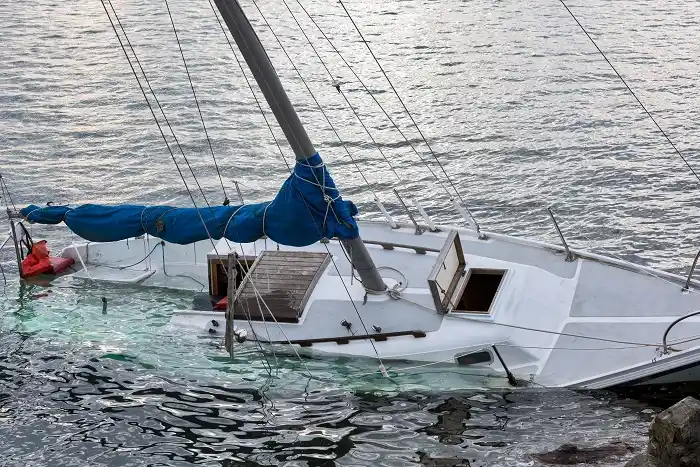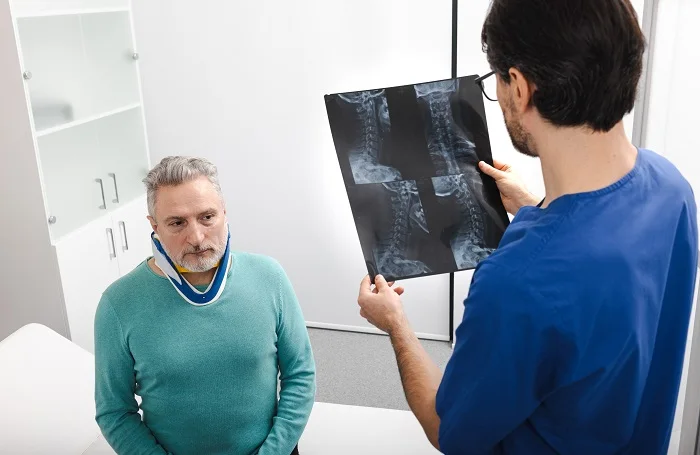Successful Cases
%20(1).avif)

Applewhite


Advocating for Waterway Safety and Justice
For fifteen years, I defended insurance companies against boating accident claims. I saw how they minimize payouts to injured victims, while blaming the weather, questioning the boater's experience, and arguing that victims shouldn't have been on the water. Today, as an Austin boating accident lawyer, I use what I learned to help injured boaters fight back.
When someone's negligence causes serious injuries on Lake Austin or Lake Travis, victims face mounting medical bills and insurance companies that don't want to pay. My insider knowledge helps level the playing field, ensuring injured boaters receive fair compensation instead of lowball offers designed to protect insurance profits.
Are Boating Accidents Common in Texas?
This year's numbers from Texas Parks and Wildlife should alarm anyone who owns a boat: 59 water-related fatalities by June 30, with 21 from boating accidents alone. That's a 75 percent jump in boating deaths compared to last year.
I've represented families dealing with the aftermath of these statistics. Real people behind real numbers — widows sorting through medical bills while planning funerals, parents watching their children struggle through months of rehabilitation, workers who can't return to their jobs because a drunk boater thought lake rules didn't apply to them. Lake Austin and Lake Travis, our favorite weekend escapes, have become scenes of preventable tragedies far too often.
Why Do Boating Accidents Happen in TX?

After nearly two decades in Texas courtrooms, the same reckless patterns surface repeatedly in boat injury cases:
- Alcohol impairment: Sun and waves accelerate intoxication, yet operators keep piloting through crowded waters.
- Operator inexperience: Rental companies hand keys to tourists with minimal training for emergencies.
- Excessive wake creation: Large vessels speed through narrow channels, capsizing smaller boats.
- Deferred maintenance: Skipped service leads to engine failures and locked steering at critical moments.
- Distracted operation: Filming videos or texting while navigating creates evidence of liability.
- Weather negligence: Operating during storms despite obvious danger signals.
- Vessel overloading: Exceeding capacity limits compromises stability when emergencies strike.
Steps to Take Immediately After a Boating Accident
Chaos erupts when boats collide. Clear thinking saves both lives and legal cases:
- Get everyone to safety and call 911.
- Document boat damage, injuries, and weather with photos and video.
- Collect witness names, numbers, and statements immediately.
- Report to Texas Parks within 30 days for serious accidents.
- Seek medical evaluation even without obvious injuries just to make sure.
- Preserve damaged equipment, clothing, and all physical evidence.
- Contact an experienced boat accident attorney before speaking to insurance.
Want Maximum Compensation for Your Boat Accident?
Let my advanced insurance knowledge work to win you the most money possible — contact Applewhite Law Firm today for a free consultation!
Types of Boating Accidents I Handle in Austin
Each category of watercraft accident brings specific legal challenges. Here's how I approach the most common scenarios on Austin waterways:
Collision Cases
Boats striking each other or fixed objects involve competing stories about speed, position, and navigation rules. I reconstruct these accidents using physical evidence and witness accounts.
Jet Ski Accidents
Personal watercraft riders often treat Lake Austin like a racetrack. High speeds combined with minimal protection can result in severe injuries, necessitating aggressive legal advocacy.
Wake and Wave Incidents
Large boats creating dangerous wakes bear responsibility when smaller vessels capsize. I use physics and witness testimony to prove causation.
Passenger Ejection Accidents
Operators who throw passengers overboard through reckless maneuvers face liability. These cases focus on specific actions that caused ejections.
Dock and Marina Accidents
Property owners who ignore hazardous conditions share blame for injuries. I pursue both premises liability and maritime claims for maximum recovery.
Common Boating Accident Injuries

Water accidents create unique trauma patterns that often prove more severe than similar land-based incidents:
- Brain and spinal injuries from violent impacts, causing everything from concussions to paralysis.
- Near-drowning complications, including secondary drowning, lung damage, and oxygen deprivation effects.
- Propeller strikes creating deep lacerations, nerve damage, or traumatic amputations.
- Multiple trauma from high-speed ejections—broken bones, internal bleeding, organ damage.
- Temperature extremes, causing hypothermia in cold water or severe burns from fuel fires.
- Psychological wounds manifesting as PTSD, anxiety, and permanent water phobias.
Too often, these catastrophic injuries lead to wrongful death when victims drown, succumb to trauma, or die from complications days after seemingly survivable accidents.
Texas Boating Laws and Your Protection
Texas law creates clear safety standards for waterway operation. Violations strengthen personal injury claims by establishing negligence.
The Texas Water Safety Act requires life jackets for children under 13, prohibits boating while intoxicated at .08 BAC (matching automobile DWI limits), and mandates safety equipment, including fire extinguishers, sound signals, and adequate flotation devices. Federal Coast Guard rules add lighting requirements and operator standards. Breaking these laws creates negligence per se, requiring defendants to explain why their violations shouldn't trigger liability.
Texas modified comparative negligence allows recovery if you're less than 51 percent at fault, protecting victims from insurance tactics that blame them for "contributing" to accidents.
Available Compensation in Austin Boating Accident Cases
When negligent operators cause injuries on Texas waterways, boating accident victims have the right to file personal injury claims seeking compensation for their losses. These legal cases pursue recovery for both the financial devastation and personal suffering that maritime accidents create. Texas law recognizes two main damage categories: economic losses and non-economic damages.
Economic Damages
Financial losses create the foundation of any boat accident claim:
- Medical expenses: Helicopter evacuations alone exceed $50,000. Add surgeries, ICU stays, rehabilitation, and future care, and the costs can reach hundreds of thousands quickly.
- Lost wages: Missing work creates immediate hardship, but permanent disabilities forcing career changes can mean millions in lifetime losses.
- Property damage: Destroyed boats, equipment, and personal belongings deserve full replacement value despite insurance resistance.
Non-Economic Damages
Texas recognizes that money alone cannot restore what accidents steal from victims:
- Pain and suffering: Chronic physical agony and permanent limitations deserve compensation beyond medical bills.
- Emotional distress: Trauma from near-death experiences and ongoing psychological impacts warrant substantial recovery.
- Loss of enjoyment: When injuries end beloved activities or force lifestyle changes, these quality-of-life impacts matter.
- Loss of consortium: Damages paid to family members for the loss of companionship and support due to the injuries suffered by their loved one.
Filing Deadline for Boating Accident Claims in Austin

Texas law imposes a rigid two-year statute of limitations for personal injury lawsuits stemming from boating accidents. This deadline begins on the accident date, not when you finish treatment or realize the extent of your injury. Limited exceptions exist, such as cases involving minors, mental incapacity, or fraudulent concealment. That’s why it’s essential to contact me immediately so you don’t miss any filing deadline.
Government vessels or accidents in state parks trigger drastically shortened deadlines, sometimes requiring notice within just six months.
Starting your legal case promptly preserves all options while building maximum settlement leverage.
Why Choose Applewhite Law Firm PLLC to Fight for Your Rights?
Winning boating accident cases takes more than knowing maritime law. It requires outsmarting insurance companies at their own game. My background gives clients exactly that edge.
Insurance insider turned advocate: Years defending carriers taught me their claim evaluation software, negotiation tactics, and settlement triggers. Now I use those secrets for victims instead of against them.
True contingency fee basis: You pay absolutely nothing unless I win. No hourly bills, no upfront costs, no financial risk while you focus on healing.
Personal attorney access: Large firms shuffle cases between associates. When you call my office, you speak with me directly about your case, always.
Trial-ready every time: Insurance companies pay more when they know you'll go to court. I prepare every case for trial, creating leverage that drives better settlements.
My commitment extends beyond legal strategy to genuine care about your recovery and future. Together, we'll pursue every penny your injuries deserve while you focus on rebuilding your life after this trauma.
.avif)
Injured in a Boating Accident in Austin, TX?
Contact Applewhite Law Firm today to start building your strongest case for compensation!
Ready for Exceptional Representation? Then Call Me.
Contact Applewhite Law Firm today to start your journey toward fair compensation!
FAQ: Addressing Common Questions about Boat Accidents
These answers address the questions I hear most often from injured victims and their families seeking justice after maritime accidents.
Who can be held liable for boating accidents in Austin, TX?
Liability in watercraft accidents often extends far beyond just the operator at the helm:
- Boat operators bear primary responsibility when impairment, recklessness, or incompetence causes crashes.
- Vessel owners who lend boats to unqualified operators or fail to maintain safe equipment share legal liability.
- Rental companies must verify customer competency and provide seaworthy vessels or face responsibility for accidents.
- Equipment manufacturers whose defective parts, including engines, steering, and safety gear, fail and cause preventable injuries.
- Marina operators allowing dangerous dock conditions, poor lighting, or navigation hazards that contribute to accidents.
- Alcohol vendors overserving obviously intoxicated boat operators, similar to bar liability in drunk driving cases.
- Commercial tour operators, who owe passengers the highest safety duty, often cut corners on maintenance and crew training.
How do I prove negligence in a boating accident?
Building successful negligence claims requires proving four legal elements while gathering comprehensive evidence to support each one:
- Duty of care existed: Every boat operator owes others on the water a legal obligation to operate safely according to Texas boating laws, Coast Guard regulations, and reasonable standards.
- Breach occurred: The operator violated that duty through specific actions like boating while intoxicated, speeding recklessly, ignoring safety equipment requirements, or violating navigation rules.
- Direct causation: Their breach directly caused your accident and injuries, proven through witness statements, accident reconstruction, and elimination of other potential causes.
- Measurable damages: You suffered actual losses, including medical expenses, lost wages, property damage, and pain that can be documented and valued.
Supporting your case requires additional evidence:
- Official documentation from police reports, Coast Guard investigations, and Texas Parks and Wildlife accident reports.
- Maintenance records showing neglected repairs or known mechanical issues.
- Weather data proving dangerous conditions the operator ignored.
- Toxicology results establishing alcohol or drug impairment.
- Expert testimony from maritime safety professionals explaining exactly how the defendant's actions violated accepted standards.
- Comparative evidence demonstrating what a reasonable, prudent operator would have done differently to prevent your injuries.







.svg)
.svg)
.svg)
